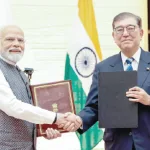As the bone-chilling winter descends on Kashmir Valley, the harsh reality of the season exposes some lacunas of our healthcare system. Many health care experts are of the opinion that there is a dire need for a more robust and resilient healthcare infrastructure, particularly during the winter months in the valley. Many a time, the Valley is often isolated from the rest of the country for extended periods due to heavy snowfall and landslides. This geographical isolation is exacerbated by the lack of reliable and efficient healthcare facilities, making the Valley’s healthcare crisis a serious concern. Winter in Kashmir is not only a test of survival against the freezing temperatures, but it also brings a surge in respiratory illnesses, cardiovascular diseases, and other cold-related health issues. Yet the valley’s health infrastructure, already stretched thin, struggles to cope with this increased demand. Hospitals lack enough specialized professionals, and many rural areas are underserved, with residents often having to travel long distances for medical attention. The COVID-19 pandemic has further underscored the dire need for robust healthcare systems everywhere, and Kashmir is no exception. The strain on healthcare resources during the pandemic has emphasized the urgency of strengthening the healthcare infrastructure in the Kashmir Valley. The government must prioritize health in its planning and budget. Investment should be increased significantly in healthcare infrastructure, particularly in building more hospitals and clinics equipped with the latest technology and staffed with trained professionals. Telemedicine and digital health initiatives can also be leveraged to extend the reach of healthcare services in remote and isolated areas. Moreover, it is essential to focus on preventive healthcare. Regular health camps should be organized to provide check-ups, vaccinations, and basic healthcare education. These initiatives can help identify potential health issues early and reduce the burden on the healthcare system. Further, the private sector and non-profit organizations also have a crucial role to play. Partnerships can be forged to pool resources, expertise, and technology. Organizations can adopt villages or districts and work towards improving the healthcare facilities in these areas. Winter may be unforgiving, but with robust healthcare systems in place, its impact on the health of the people can be lessened significantly. It is a collective responsibility to ensure that every individual, regardless of where they live, has access to quality healthcare services. At the end of the day it is not merely about survival against the cold. It is about ensuring that the people of Kashmir have the healthcare support they need to live healthy and fulfilling lives.
Need for robust healthcare
Sign Up For Daily Newsletter
Be keep up! Get the latest breaking news delivered straight to your inbox.
By signing up, you agree to our Terms of Use and acknowledge the data practices in our Privacy Policy. You may unsubscribe at any time.
Leave a Comment Leave a Comment
Stay Connected
Latest News
Recent Posts
- Japan to invest 10 trillion yen in India over next one decade
- 50,000 ‘skilled, semi-skilled’ Indian personnel to be sent to Japan: MEA
- HM Shah likely on two-day visit to Jammu from tomorrow
- LG admin forms committee to investigate Shri Mata Vaishno Devi landslide
- All 34 victims identified, bodies handed over to families





